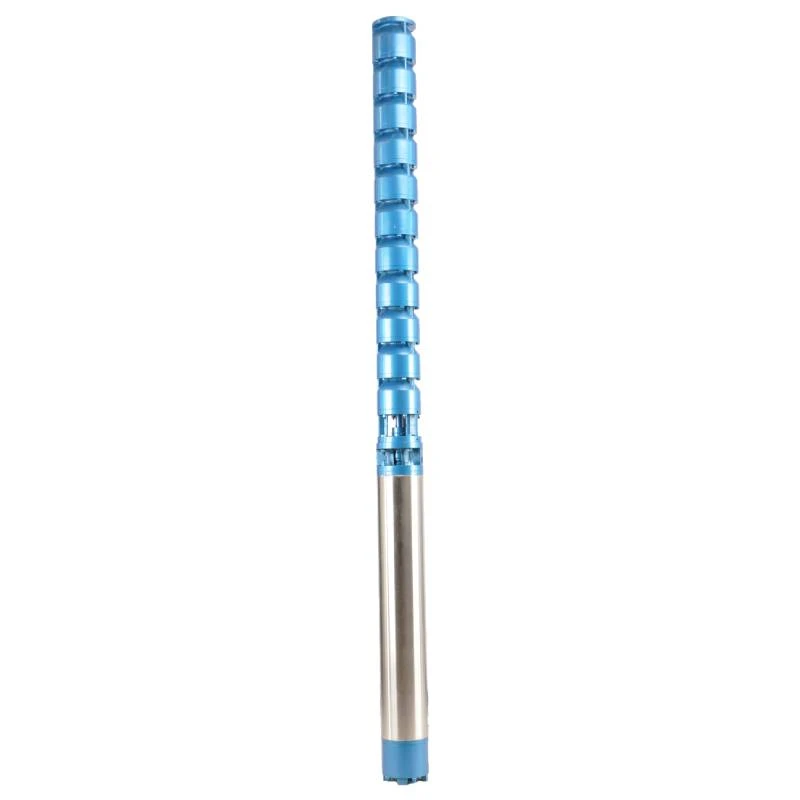Dec . 05, 2024 10:38 Back to list
submersible well pump cost
Understanding the Costs of Submersible Well Pumps
Submersible well pumps are essential devices used in various sectors, including agriculture, municipal water supply, and residential applications. They efficiently draw water from deep underground sources, making them ideal for wells that do not have enough pressure to send water to the surface on their own. While submersible pumps are incredibly useful, understanding their costs can be crucial for anyone considering purchasing one. This article provides an overview of the factors influencing the price of submersible well pumps and offers insight into total ownership costs.
Factors Influencing the Cost of Submersible Well Pumps
1. Type and Size of Pump The primary factor influencing the cost of a submersible well pump is its type and size. Pumps can vary significantly in price depending on their horsepower (HP), which translates to how much water they can move per minute. Smaller pumps may be available for as low as $200 to $500, while larger, industrial-grade systems can range from $1,000 to over $10,000.
2. Depth of Installation The depth at which the pump will be installed affects the design and power requirements of the pump, thus impacting the overall cost. Deeper wells require more powerful pumps, which are typically more expensive due to the added complexity and materials needed to withstand high-pressure conditions.
3. Material and Build Quality The construction materials play a vital role in determining the pump's durability and longevity. Pumps made from stainless steel, for example, are often more expensive but offer better resistance to corrosion compared to their plastic counterparts. Investing in a higher-quality pump can lead to lower maintenance costs and longer service life in the long run.
4. Energy Efficiency Energy-efficient pumps are generally more expensive upfront but can save significant amounts of money on electricity bills over time. Pump technology has advanced, offering options like variable frequency drives (VFDs) that not only enhance efficiency but also allow for better control over the pump's operation.
5. Brand and Warranty The manufacturer’s reputation also plays a role in the pricing of submersible well pumps. Established brands often charge a premium for their products, but they may have better customer support and warranties. A warranty can reduce the risk associated with the purchase, offering peace of mind that any potential issues will be addressed without incurring significant costs.
submersible well pump cost

Installation Costs
While the pump itself represents a considerable portion of the expense, installation costs must also be factored into the overall cost calculation. Professional installation is typically recommended for submersible pumps, especially for deeper installations. Depending on the complexity of the job, labor costs can range from anywhere between $300 to $2,000. Factors influencing this cost include local labor rates, the difficulty of accessing the well, and any additional components required for installation, such as wiring and control systems.
Maintenance and Operational Costs
Once installed, ongoing maintenance plays a crucial role in the total cost of ownership. Regular maintenance can extend the pump's lifespan and prevent expensive repairs. Maintenance costs may include yearly inspections, cleaning, lubricating parts, and potential replacements of worn components. On average, annual maintenance could range from $100 to $500.
Moreover, utility costs for operating the pump should also be considered. The energy consumption will depend on the pump’s horsepower and how frequently it runs. Calculating this cost helps in assessing the long-term financial implications of owning a submersible well pump.
Conclusion
In conclusion, the costs associated with submersible well pumps can vary widely based on several factors, including type, size, materials, installation, and ongoing maintenance. When planning to invest in a submersible well pump, it is crucial to evaluate not only the initial purchase price but also the installation and long-term operational costs.
Potential buyers should conduct thorough research and potentially consult with professionals to choose a pump that meets their needs without compromising on quality or efficiency. With thoughtful consideration, investing in a submersible well pump can provide a reliable water supply, ensuring both productivity and sustainability in various applications.
-
Submersible Water Pump: The Efficient 'Power Pioneer' of the Underwater World
NewsJul.01,2025
-
Submersible Pond Pump: The Hidden Guardian of Water Landscape Ecology
NewsJul.01,2025
-
Stainless Well Pump: A Reliable and Durable Pumping Main Force
NewsJul.01,2025
-
Stainless Steel Submersible Pump: An Efficient and Versatile Tool for Underwater Operations
NewsJul.01,2025
-
Deep Well Submersible Pump: An Efficient 'Sucker' of Groundwater Sources
NewsJul.01,2025
-
Deep Water Well Pump: An Efficient 'Sucker' of Groundwater Sources
NewsJul.01,2025
-
 Submersible Water Pump: The Efficient 'Power Pioneer' of the Underwater WorldIn the field of hydraulic equipment, the Submersible Water Pump has become the core equipment for underwater operations and water resource transportation due to its unique design and excellent performance.Detail
Submersible Water Pump: The Efficient 'Power Pioneer' of the Underwater WorldIn the field of hydraulic equipment, the Submersible Water Pump has become the core equipment for underwater operations and water resource transportation due to its unique design and excellent performance.Detail -
 Submersible Pond Pump: The Hidden Guardian of Water Landscape EcologyIn courtyard landscapes, ecological ponds, and even small-scale water conservancy projects, there is a silent yet indispensable equipment - the Submersible Pond Pump.Detail
Submersible Pond Pump: The Hidden Guardian of Water Landscape EcologyIn courtyard landscapes, ecological ponds, and even small-scale water conservancy projects, there is a silent yet indispensable equipment - the Submersible Pond Pump.Detail -
 Stainless Well Pump: A Reliable and Durable Pumping Main ForceIn the field of water resource transportation, Stainless Well Pump has become the core equipment for various pumping scenarios with its excellent performance and reliable quality.Detail
Stainless Well Pump: A Reliable and Durable Pumping Main ForceIn the field of water resource transportation, Stainless Well Pump has become the core equipment for various pumping scenarios with its excellent performance and reliable quality.Detail
